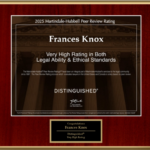If an accident or malicious incident caused property damage to your home, land, or personal property while in North Carolina, you have the potential to receive compensatory damages from a civil court case.
Compensatory damages are designed to put you, the victim, in a financial place as if property damage never occurred. To receive compensation for the damages, you need to meet a few deadlines and prove a few critical things to the state’s civil court.
What Is Considered Property Damage In North Carolina?
In North Carolina, property damage includes damage to your car, house, land, iPhone, jewelry, and other items you purchased and have ownership over.
However, depending on the situation, if you file an insurance claim for the damaged property, such as a car, your insurance carrier may only choose to pay for a repair, not a replacement. This could hurt your vehicle’s market value or depreciated value when you try to re-sell it or trade it in. A civil case can help you recoup any lost money in this situation.
Some things such as photographs, drawings, or other personal items might have sentimental value, emotional, or intrinsic value to you. However, the court likely will not compensate you monetarily for any damages to that type of property.
In some instances, you may be eligible for consequential monetary damages. For example, suppose you’re in a car accident, and while your car is being repaired, you need a rental car. In that case, you may be able to win consequential damages to pay for the rental vehicle because you wouldn’t have rented a car if the accident didn’t occur.
What’s the Statute of Limitations On A Property Damage Case In North Carolina?
If you want to bring a property damage claim case to the state’s civil court system, you must do so within three years.
The three-year time frame begins when the damage becomes apparent or should have been reasonably apparent to the claimant, whichever event occurs first.
Property damage cases can be rolled into a more extensive criminal case or stand independently but still need to adhere to the three-year statute of limitations.
In rare cases, if the property owner is under the age of 18 or has been declared insane or legally incompetent, the ‘clock’ won’t start on the statute until the owner is 18 years old or the disability has ended.
What Should I Do If I Have A Property Damage Case?
If another party has damaged your property, call the Knox Law Center for a complimentary consultation today. Our firm has a 60-year track record of winning cases in the North Carolina civil court system. It can provide you with the expertise needed to win the most considerable amount of damages for your property damage possible.






